Slow reveal - Fara F/Road is way faster than its modest appearance suggests
Flashy? No. Fast? You bet. Fara's restrained-looking F/Road is surprisingly rapid when let off the leash
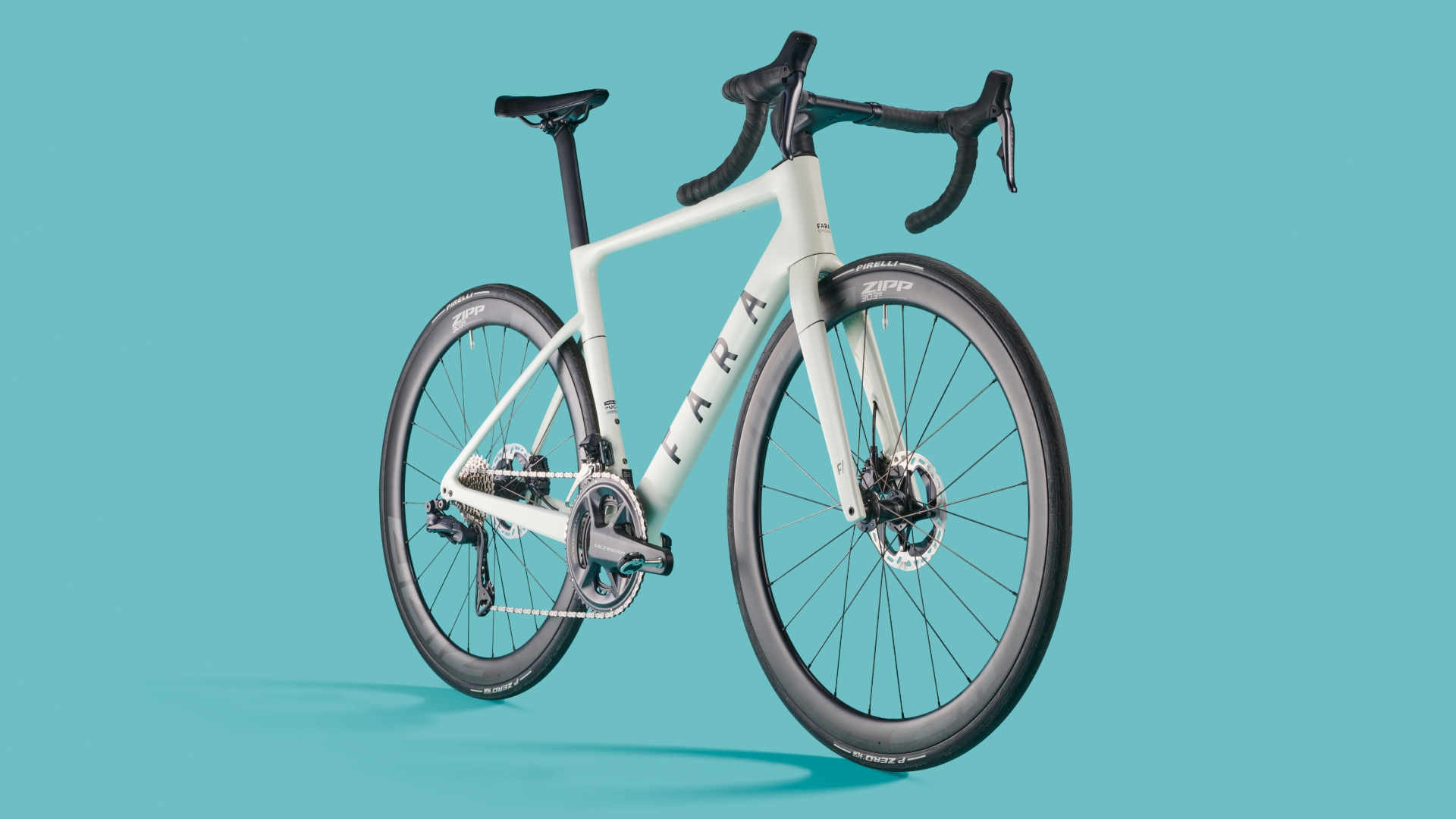
The Fara F/Road is good bike for someone focussed on gaining little advantages in the pursuit of both higher speeds and efficient climbing. It also represents good value for money, considering the specification.
-
+
Lightweight
-
+
Aero
-
+
Full internal cable routing for both mechanical and electronic shifting
-
-
Fairly stiff
You can trust Cycling Weekly.
Fara is an Old Norse word which means ‘to journey’ or ‘to venture’. It is still used in the English words ‘Wayfaring’ and ‘Seafaring’ with the same sense of meaning. Although I don’t intend to take the F/Road on the water, will it be an ideal companion to ride the roads and lanes of Surrey? With its aim to be “responsive and fast without sacrificing weight in the name of aerodynamics” as well as not “being too harsh” or “forcing you into an uncomfortable riding position”, how will this fast road bike fare?
Norway's Fara has three bikes in its current lineup, the F/Road, the F/All-Road and the F/Gravel, all aimed at exploring different aspects of the landscape.
Construction
The frame and fork use Toray carbon fibre to create a sub 900g frame weight with optimised wall thicknesses and drag reducing aero tube shapes to create a light and fast bike. The frame has been UCI approved, using the prescribed standards for aerodynamic optimisation. The frame, and fork, have full internal cable routing and are able to accommodate either mechanical or electronic shifting.
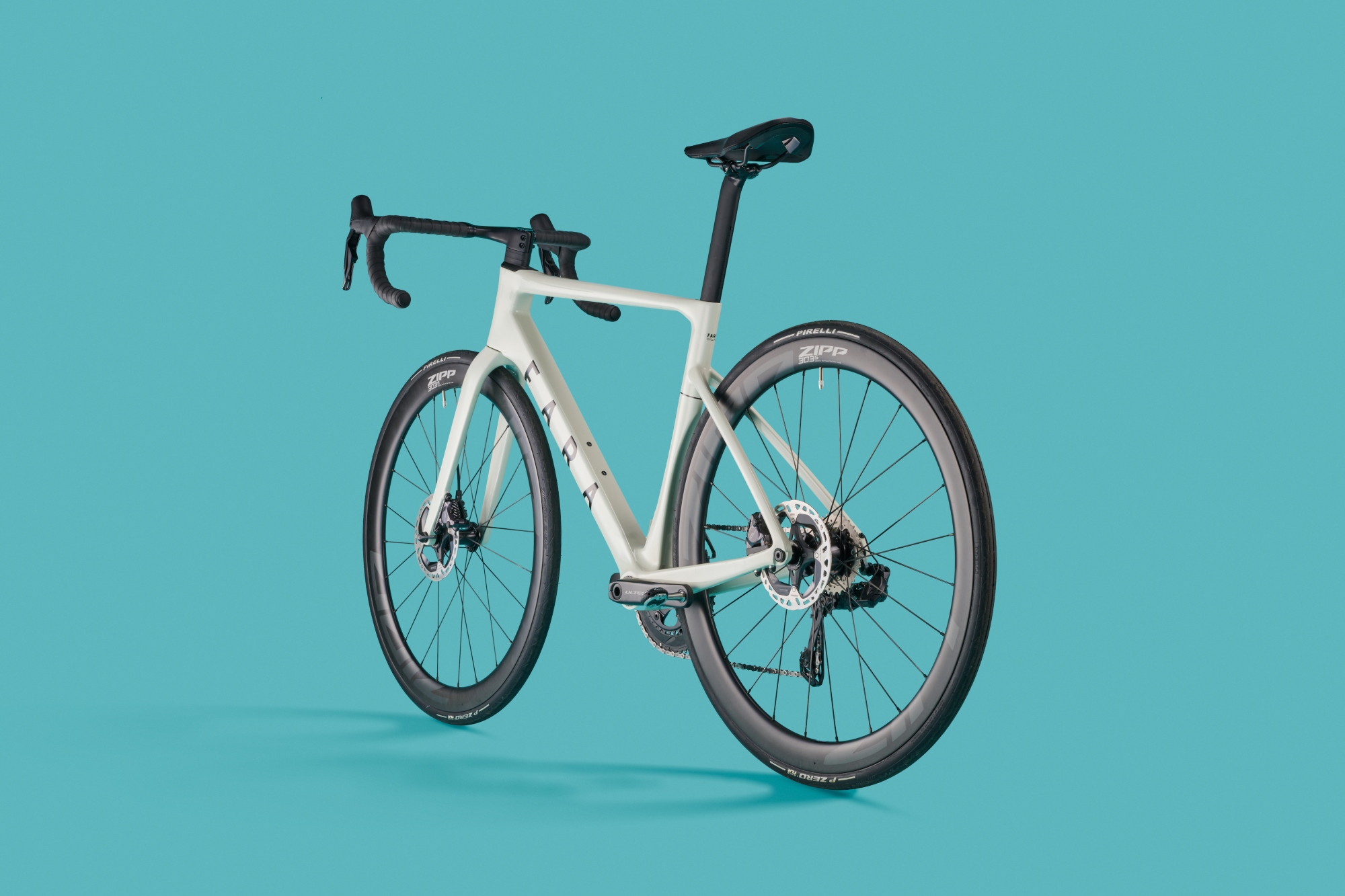
The F/Road's truncated NACA airfoil tubes are designed for optimal weight and aero efficiency
Ride-tuned vertical compliance and curved seat-stays for increased comfort, aim to reduce harshness for the rider too. Able to take up to 32mm width tyres (supplied with 28c tyres) also helps in the comfort stakes, especially with the lower pressures that tubeless setups enable.
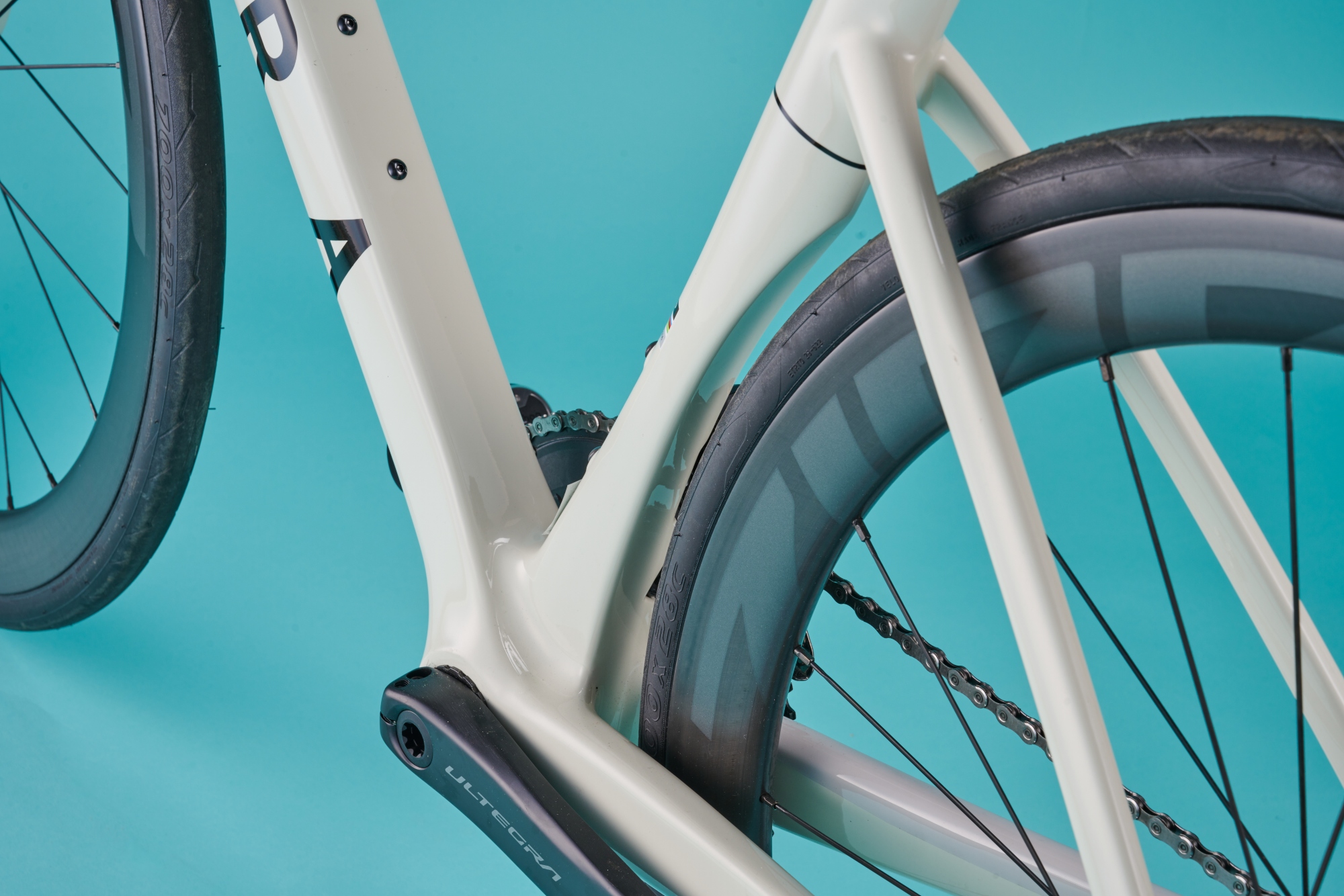
The seat tube cutout follows the arc scribed by the rear wheel. A lovely aesthetic detail as well as very aero.
The ride
The bike looks great in its off-white livery, with black lettering and components, NACA truncated aero tubing, and clean integrated looks. The detail that I’m drawn to the most during my time with the bike is the cutout in the seat tube. It follows the line of the rear tyre, and the curve keeps the same gap throughout its arc. The Kamm style profile has a flat rearward section covering the rear tyre from the air flow.
I also approve of the inclusion of a T47 bottom bracket, which is fast becoming the new standard. It has much to like, with its threaded shell, bigger bearings and ability to accommodate both 24mm and 30mm axle types. I was also pleased to see M12 axles on the 100mm and 142mm hub widths too. Another standard that makes a lot of sense.
The one piece aero shaped cockpit looked great, hiding, as it does, the hydraulic brake lines. It makes for a very clean silhouette. Handily, it has two threads underneath the stem to attach a computer/light mount, which Fara sells for £46. Otherwise, it’s rather difficult to attach those items to the bars due to their aero profile.
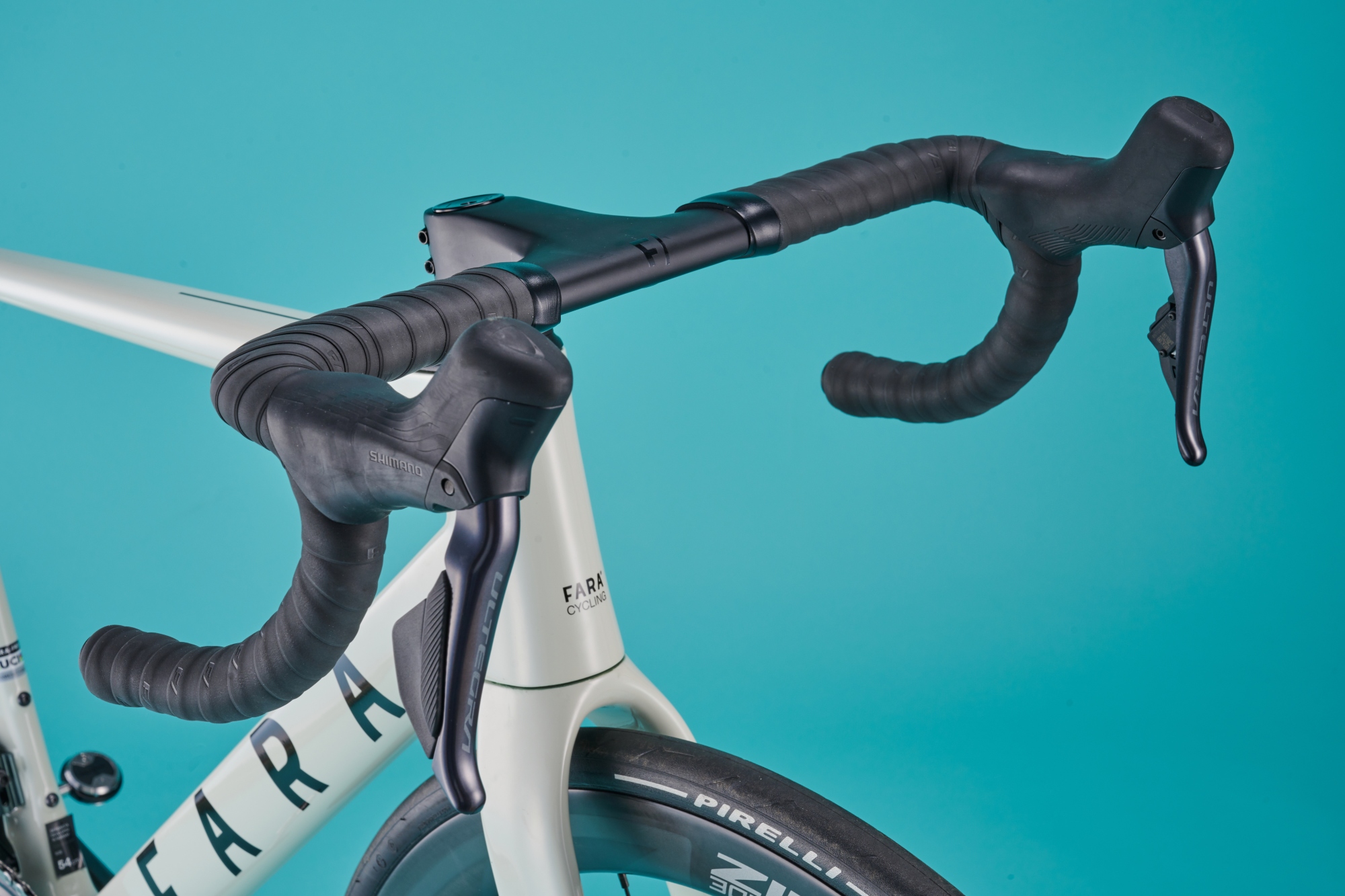
No cables are visible as the one-piece aero-shaped bar and stem keep everything hidden. Two threads on the underside enable a computer/light mount to be fitted.
On my first ride out I misjudged quite how low the tyre pressures needed to be. I use Pirelli P Zero 28c tyres on my own bike but those on the Fara, due to the hookless sidewall of the Zipp 303s wheels along with the TLR tyres, only needed 60 psi for my weight of 66 kilos. Running them with a higher pressure resulted in a harsh ride. However, once the optimum pressure had been found the F/Road was much smoother and more comfortable.
Once riding, the handling is balanced, a fraction on the fast side but nowhere near twitchy territory. However, the 45mm rim depth of the Zipp 303s front wheel did get a little gyroscope-y and nervous in moderate to blustery wind conditions, particularly when descending a really steep and fast hill near Box Hill in Surrey. I backed off a little as I didn’t particularly like the sensation. However, I normally ride 26mm deep rims which don’t behave in this manner.
The short-ish 410mm rear centre (bottom bracket to rear axle measurement) was very positive in its turning character, and the bike's ability to pass all the power to the back wheel while staying stable when I was out of the saddle, accelerating up a hill, was excellent.
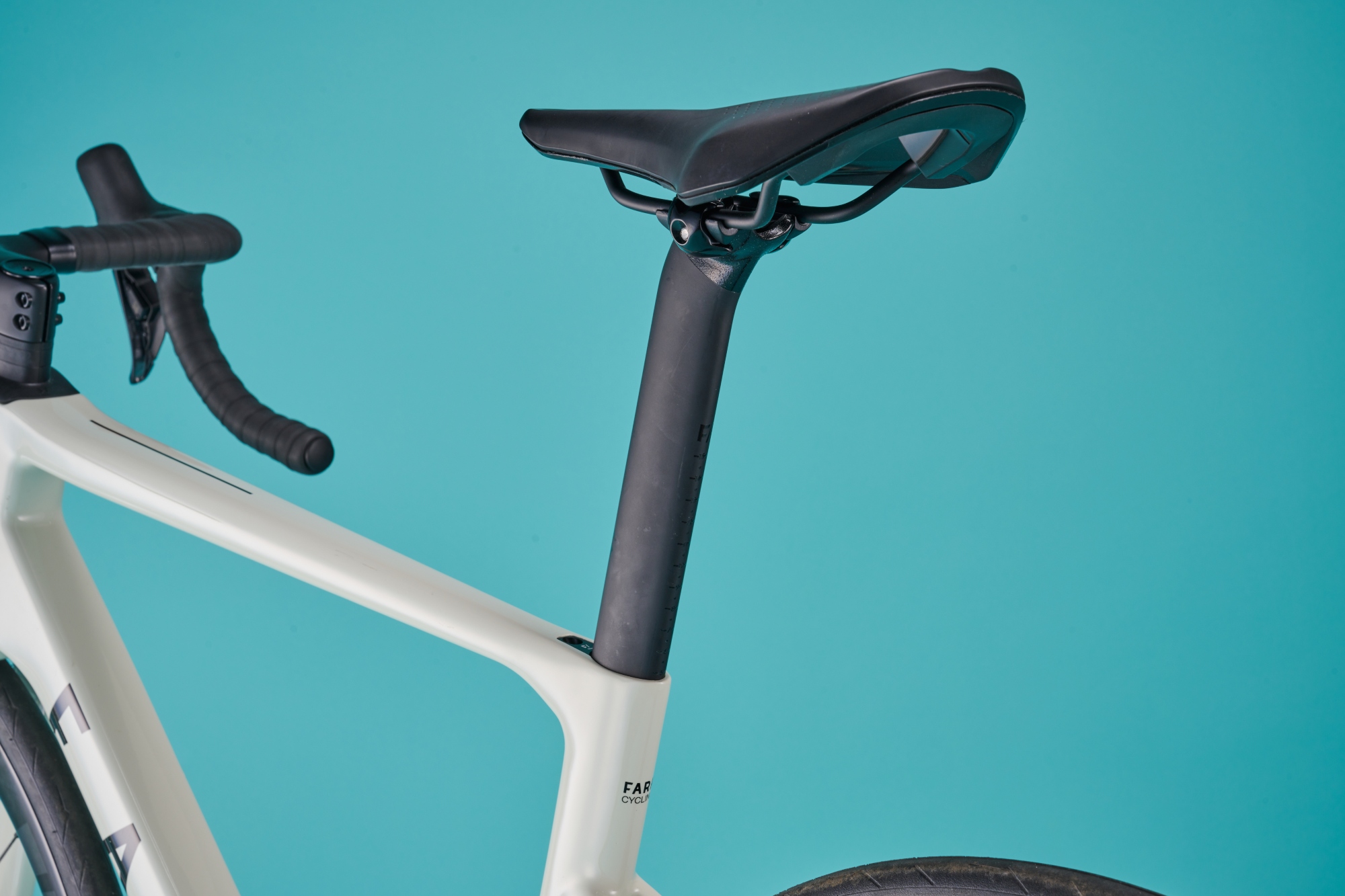
The seatpost is reversible to allow either 25mm or 0mm of layback, and the frame features a hidden aero seat post wedge.
The seatpost, and curved seat stays, did a good job keeping road buzz from the Fizik saddle, and its unusual double aero profile can be reversed to give either 25mm of layback or 0mm. This is helpful should you wish to adopt a more aero position on the bike, or just to keep it more ‘road’. The hidden aero seat-post wedge held the seatpost firm at its prescribed torque setting, and helpfully there are discrete measurement marks on the post to set it up too.
The Ultegra Di2 12-speed groupset did its work without fuss, as you’d expect. I used the e-Tube app to customise the shifts to my preference, which worked well. I found the 52 tooth outer chainring a little big for my taste but the 36T inner and 30-11 cassette were spot on and matched the setup on my own bike. The brakes worked well, with good power and modulation, but our test bike was supplied with continental positioning, so the front brake was on the left. Fortunately, however, when ordering a bike on Fara’s website you can specify which way round you want them set up.
The bike was quiet when riding, apart from a very reasonable click from the freehub. No swarm of angry bees here! Sometimes, I have found that larger tubed carbon monocoques can rumble away, but there was nothing with this design, and I appreciated the silence.
Value and verdict
This is a bike that, for me, didn’t reveal its qualities immediately. On a solo ride it didn’t feel as fast as I thought it might, yet when riding with a friend I could see that it was fast. Having very recently ridden the supremely smooth titanium Enigma Eikon, this bike felt stiffer and less smooth, yet when doing a quick bike swap with my friend, who has a Specialized Tarmac, and then returning to this bike, it felt much smoother and faster than the older Tarmac.
So it’s been a bit of a journey on the Fara, both literally and metaphorically, to appreciate that what it offers is really rather good. A little time spent getting the tyre pressures spot on is the key to getting the most out of this design. This is a good bike for someone focussed on gaining little advantages in the pursuit of higher speeds and efficient climbing. It also represents good value for money, considering the specification. Skol!
Specs
- Frame: Lightweight TorayTM Carbon fibre frame
- Fork: Aero-optimised Carbon fork legs
- Groupset: Shimano Ultegra Di2 12 speed (8170), Crankset 36/52, Cassette 11-30, 160mm Ice-Freeza Rotors
- Bottom Bracket: Token T47
- Wheels: ZIPP 303s 700c
- Tyres: Pirelli P Zero Race TLR 700x28c
- Handlebars & Stem: F/ Carbon Road Barstem Mk.2
- Seatpost: Reversible aero seat post w. Hidden aero seat-post wedge 25mm or 0mm layback
- Saddle: Fizik Tempo Argo R5 - 150mm
- Weight: 7.3kg

Thank you for reading 20 articles this month* Join now for unlimited access
Enjoy your first month for just £1 / $1 / €1
*Read 5 free articles per month without a subscription

Join now for unlimited access
Try first month for just £1 / $1 / €1
The latest race content, interviews, features, reviews and expert buying guides, direct to your inbox!
Over 40 years cycling in a variety of disciplines including road riding, commuting, a self-supported Land's End to John o' Groats trip, XC mountain biking and several Polaris Challenge two-day events. Adventure, escape and fun are the motivations for my riding. I also love bike and kit design and have fillet brazed a couple of framesets using Reynolds 853 steel tubing for myself. A very satisfying experience to ride your own bespoke bike!
Height: 180cm
Weight: 66kg